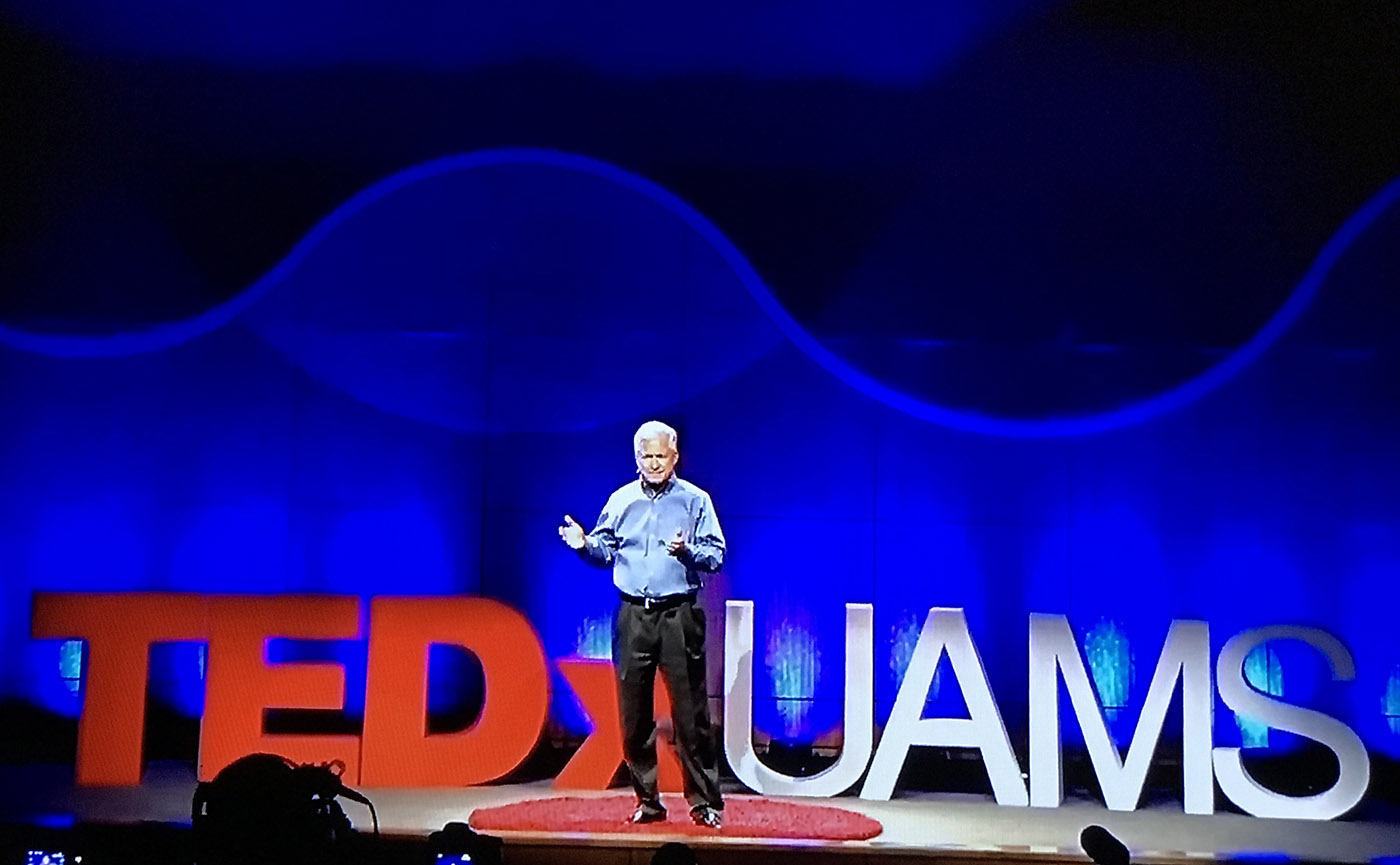
At the University of Arkansas for Medical Sciences’ TEDxUAMS event on Feb. 7, ACHI President and CEO Dr. Joe Thompson gave a talk focusing on what we can do now to improve the quality of life we will experience in our later years. The title of his talk was, “Live Well, Die Fast.”
People live longer now than they did a century ago, but the later decades of a person’s life are not necessarily healthy decades, Dr. Thompson said. For many, he said, those years are plagued by conditions such as heart disease, diabetes, cancer, arthritis, and dementia.
“These conditions are our morbidities,” Dr. Thompson told the audience. He said we want to “maximize the time that we have because of extended mortality, but we want to have minimum morbidity.”
He outlined several concrete steps that adults in different age groups can take to live well:
Millennials
- Wear seat belts and helmets. Accidents are the No. 1 cause of disability for young adults.
- Avoid becoming a fast food junky.
- Find physical activities you enjoy.
- Avoid nicotine and do not abuse alcohol or other drugs.
- Practice safe sex.
Gen Xers
- Look for daily opportunities for physical activity, such as taking the stairs instead of the elevator.
- Watch out for the 2 or 3 pounds a year people in this age group tend to gain. It will end up being 20 or 30 pounds over a decade.
- Avoid fried foods and sugar-sweetened beverages (and yes, that includes sweet tea).
- Get recommended screenings for conditions such as colorectal cancer, breast cancer, and hypertension.
- Develop social circles outside of work. If work is your major social outlet, then after retirement you may become isolated, which can lead to depression.
Baby Boomers
- Remain active physically. Turn off the TV, get off the couch, and get outside.
- Remain active mentally. Crosswords and other puzzles are good ways to stimulate your brain.
- Tend to your emotional health. Find your friends and engage in activities you enjoy with them.
- Boost your immune system, which wanes over time, with flu and pneumonia vaccinations.
- Get rid of anything in your home that could precipitate a fall, such as a slippery rug.
Dr. Thompson said our healthcare system can do amazing things, but it can also keep us alive to a point where we would no longer consider our life to be of good quality. Most of us, when we think about our end, want a quick, peaceful death in a comfortable place, preferably our home ― but too often, we meet our end in a brightly lit intensive care room, he said.
That is why it is important to have a three-step plan, he said. The steps are as follows: Get your or your loved one’s medical history down on a single page; talk about, and document, your or your loved one’s intentions regarding how much end-of-life care is wanted and how much is not wanted; and make sure others know where those two documents are.
Dr. Thompson concluded by challenging the audience members to think every day about what they are doing to invest not only in their financial futures but also in the futures of their minds, bodies, and souls.
“Remember, the most important asset you have is your body and yourself,” he said. “Make good investments, and I hope you’ll think about how you want to live well and die fast.”






